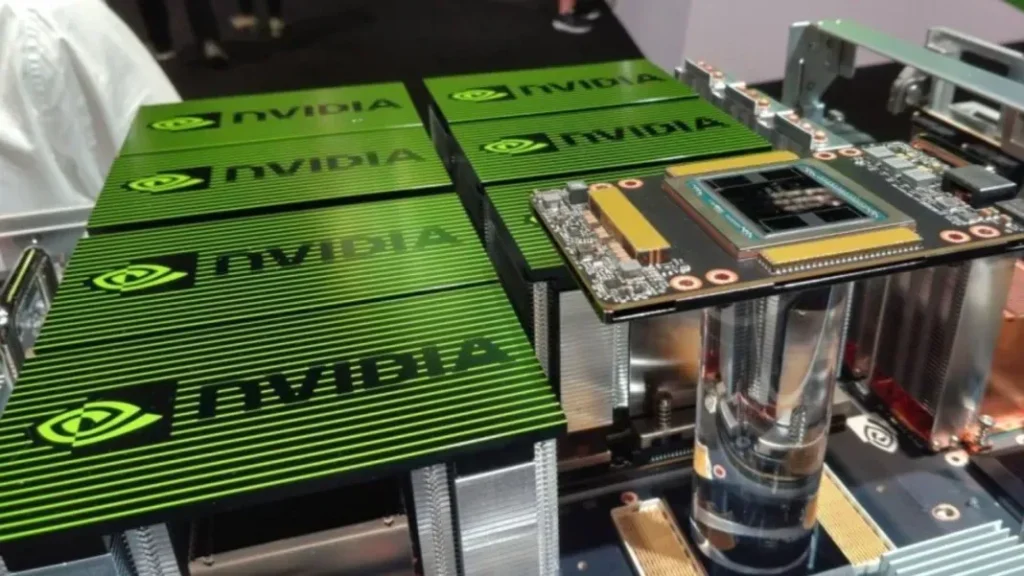The Nvidia H20 chip security risk has become a focal point in the ongoing geopolitical tensions surrounding artificial intelligence technology. Recent claims from Chinese state media have raised concerns that these chips pose a significant national security threat, suggesting they may contain hidden vulnerabilities that could allow for unauthorized remote access. In a rebuttal, Nvidia firmly denies these allegations, asserting that their chips are designed without any backdoor features, emphasizing their commitment to cybersecurity. This controversy has further fueled discussions on semiconductor export controls, as the U.S. government continues to scrutinize the implications of AI chips in the hands of foreign nations. As Nvidia navigates these complex challenges, their response not only addresses the accusations but also underscores the essential role of responsible tech development in the global arena.
The recent allegations surrounding the security implications of Nvidia’s H20 chips have sparked a significant debate on the safety of artificial intelligence hardware in international markets. Chinese media outlets have accused Nvidia of producing chips that could potentially compromise national security, raising alarms about possible backdoors that threaten cybersecurity. In light of these claims, Nvidia has made it clear that their chip designs prioritize user safety and integrity without any hidden access points. This situation highlights the broader context of semiconductor export regulations and the crucial intersection of technology and national security in today’s geopolitical landscape. As discussions intensify regarding the U.S.-China trade dynamics, the scrutiny of chips like the H20 illustrates the delicate balance between innovation, safety, and political interests.
Nvidia H20 Chip Security Risk: Addressing the Claims
The controversy surrounding the Nvidia H20 chip and its purported security risks has sparked significant debate in the tech community. Chinese state media, particularly an outlet linked to the government, has proclaimed that these artificial intelligence chips pose a national security threat, asserting that the technology lacks both sophistication and environmental consideration. This alarming narrative suggests that the chip could enable unauthorized remote access, raising concerns over consumer safety and data privacy.
In response to these accusations, Nvidia has strongly defended its product, stating categorically that there are no ‘backdoors’ in their H20 chips. This reinforces the company’s commitment to cybersecurity and consumer assurance. Nvidia reminds stakeholders that their technology is developed to stringent safety standards and that any claims regarding built-in vulnerabilities are unfounded and misleading.
Frequently Asked Questions
What are the security risks associated with the Nvidia H20 chip?
The Nvidia H20 chip has faced accusations from Chinese state media claiming it poses national security risks. These accusations suggest the chip could potentially contain a ‘backdoor’ allowing unauthorized remote access. However, Nvidia has firmly denied these claims, stating that their chips, including the Nvidia H20, do not include backdoors for remote control.
How did Nvidia respond to the claims of the H20 chip being a security risk?
Nvidia responded to the accusations from Chinese state media by emphasizing their strong commitment to cybersecurity. A company spokesperson clearly stated, ‘NVIDIA does not have backdoors in our chips,’ assuring that the H20 chip does not allow for unauthorized remote access or control.
What are the allegations made by Chinese state media about the Nvidia H20 chip?
Chinese state media has alleged that the Nvidia H20 chip is technologically inferior and raises environmental concerns. The publication criticized the chip for possibly enabling harmful features like a remote shutdown via a supposed hardware backdoor, although these claims are contested by Nvidia.
What is the significance of the Nvidia H20 chip in the context of U.S.-China relations?
The Nvidia H20 chip is significant in U.S.-China relations as it continues to be a focal point amidst rising tensions over semiconductor export controls. The chip was tailored for the Chinese market following restrictions on more advanced models, making it a crucial player in the ongoing negotiations and discussions surrounding trade and technology.
Are there any export controls affecting the Nvidia H20 chip?
Yes, the Nvidia H20 chip is subject to U.S. export controls which are primarily aimed at preventing potential military applications of advanced semiconductor technology by China. These controls reflect ongoing national security concerns that have escalated in recent years.
How does the Nvidia H20 chip compare to Nvidia’s other AI chips like the H100 and B100?
The Nvidia H20 chip is considered less advanced compared to Nvidia’s flagship H100 and B100 chips. The H20 has been designed specifically to comply with export restrictions while still serving the Chinese market, which has led to its characterization as inferior in capability and performance.
Why did Nvidia cut its revenue guidance for the H20 chip?
Nvidia significantly reduced its revenue guidance associated with the H20 chip due to a $4.5 billion writedown on unsold inventory. This was partly attributable to the U.S. export restrictions that inhibited the company’s ability to sell more advanced chips to China, impacting overall sales projections.
What role does Nvidia play in the global AI market?
Nvidia is a leading supplier of artificial intelligence chips and plays a crucial role in setting industry standards. The company advocates for the significance of its chips, including the H20, in maintaining the U.S. market dominance in AI technology amid increasing competition from other nations.
What environmental concerns have been raised regarding the Nvidia H20 chip?
Chinese media has raised concerns over the environmental implications of the Nvidia H20 chip, labeling it as not environmentally friendly. These claims accompany accusations about the chip’s overall safety and technological advancement, although Nvidia has not publicly addressed specific environmental impact assessments.
What does the future hold for the Nvidia H20 chip amidst trade negotiations?
The future of the Nvidia H20 chip will likely be influenced by ongoing U.S.-China trade negotiations, particularly surrounding semiconductor export regulations. As discussions continue, Nvidia may advocate for eased restrictions on high-bandwidth memory chips, which could impact the sales and market performance of the H20 chip.
| Key Point | Details |
|---|---|
| Nvidia’s Response | Nvidia issued a formal response denying the accusations from Chinese media about its H20 chips being a security risk. |
| Claims of Backdoors | Chinese state media suggested that H20 chips could have a hardware backdoor allowing remote shutdown. |
| Nvidia’s Stance on Cybersecurity | Nvidia emphasized the importance of cybersecurity, stating there are no backdoors in their chips. |
| Comparisons with Other Chips | The H20 chips are less advanced compared to Nvidia’s flagship H100 and B100 chips. |
| Market Impact | Nvidia has faced significant financial losses, including a $4.5 billion writedown on unsold H20 inventory. |
| US-China Semiconductor Tensions | Tensions have escalated over semiconductor exports, with ongoing negotiations regarding trade restrictions. |
Summary
The Nvidia H20 chip security risk has taken center stage following claims from Chinese state media alleging potential threats. Despite these accusations, Nvidia has refuted the existence of backdoors, asserting their commitment to cybersecurity and the integrity of their products. As geopolitical tensions continue to affect the semiconductor industry, the implications for Nvidia and its operations in China remain significant. Understanding the landscape surrounding Nvidia H20 chips is crucial as the company navigates challenges posed by both market demand and international relations.



